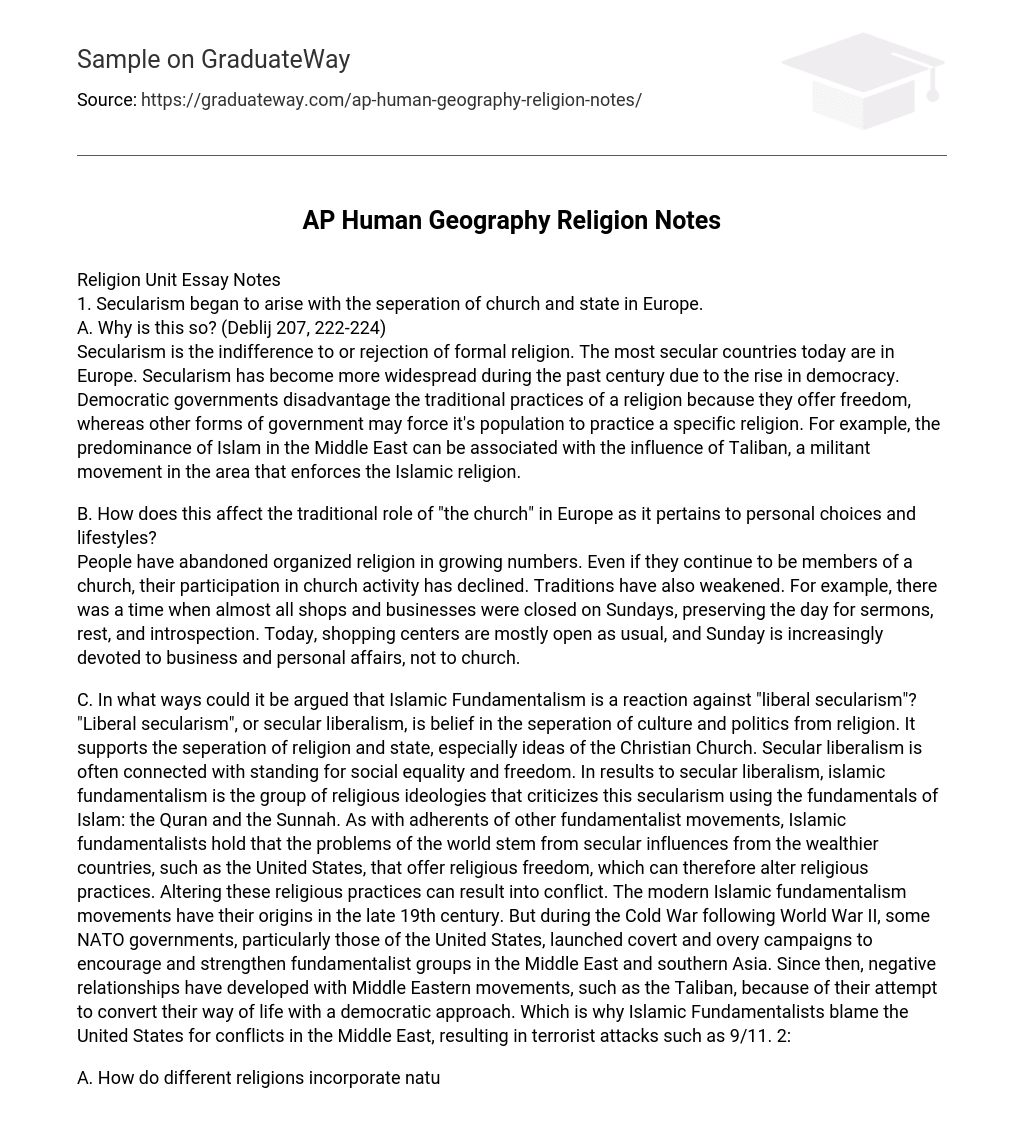Secularism began to arise with the seperation of church and state in Europe. Why is this so?
Secularism is the indifference to or rejection of formal religion. The most secular countries today are in Europe. Secularism has become more widespread during the past century due to the rise in democracy. Democratic governments disadvantage the traditional practices of a religion because they offer freedom, whereas other forms of government may force it’s population to practice a specific religion. For example, the predominance of Islam in the Middle East can be associated with the influence of Taliban, a militant movement in the area that enforces the Islamic religion.
How does this affect the traditional role of “the church” in Europe as it pertains to personal choices and lifestyles?
People have abandoned organized religion in growing numbers. Even if they continue to be members of a church, their participation in church activity has declined. Traditions have also weakened. For example, there was a time when almost all shops and businesses were closed on Sundays, preserving the day for sermons, rest, and introspection. Today, shopping centers are mostly open as usual, and Sunday is increasingly devoted to business and personal affairs, not to church.
In what ways could it be argued that Islamic Fundamentalism is a reaction against “liberal secularism”?
“Liberal secularism”, or secular liberalism, is belief in the seperation of culture and politics from religion. It supports the seperation of religion and state, especially ideas of the Christian Church. Secular liberalism is often connected with standing for social equality and freedom.
In results to secular liberalism, islamic fundamentalism is the group of religious ideologies that criticizes this secularism using the fundamentals of Islam: the Quran and the Sunnah. As with adherents of other fundamentalist movements, Islamic fundamentalists hold that the problems of the world stem from secular influences from the wealthier countries, such as the United States, that offer religious freedom, which can therefore alter religious practices. Altering these religious practices can result into conflict.
The modern Islamic fundamentalism movements have their origins in the late 19th century. But during the Cold War following World War II, some NATO governments, particularly those of the United States, launched covert and overy campaigns to encourage and strengthen fundamentalist groups in the Middle East and southern Asia.
Since then, negative relationships have developed with Middle Eastern movements, such as the Taliban, because of their attempt to convert their way of life with a democratic approach. Which is why Islamic Fundamentalists blame the United States for conflicts in the Middle East, resulting in terrorist attacks such as 9/11.





